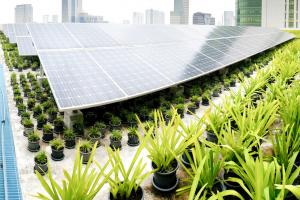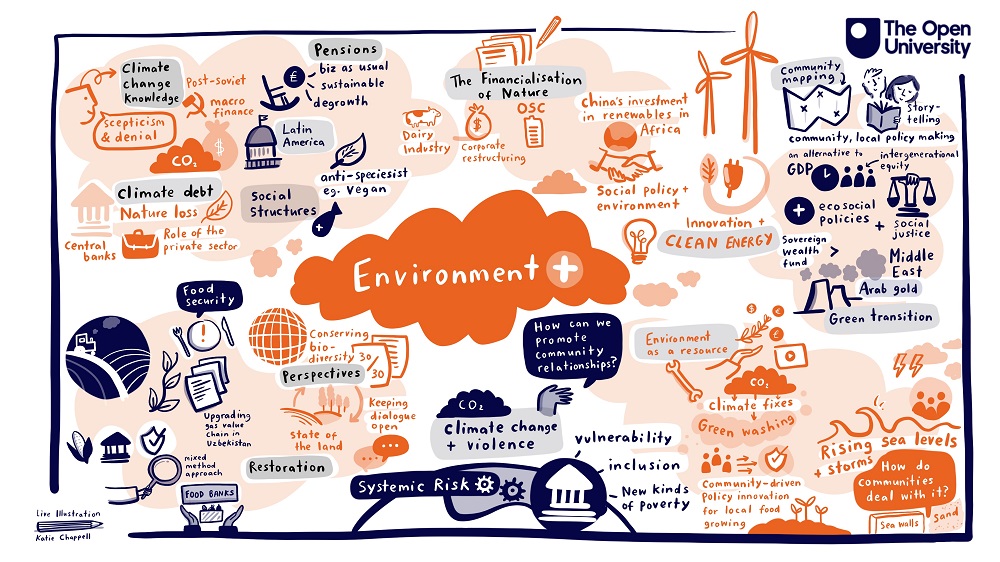Environment +

Two elements are core to addressing global environmental challenges (including climate): people and knowledge. We generate and exchange knowledge to tackle these challenges from a unique angle centred on the role of people: communities, institutions and economic systems.
Socio-environmental struggles and transitions are deeply intertwined with justice. Many economic concepts and institutions shape how humans relate to the environment. We bring together justice and institutional and economic approaches, including macrofinance, through a wide range of methods and environment topics, such as rising sea levels, agrifood systems and greenhouse gas emissions from energy. Our goal is to support social innovation that helps societies address some of the most significant issues humanity has faced.
We work in geographies across the world and envision development as global, aiming for better models of human welfare, reducing inequality, and ensuring that transitions to address the climate imperative also empower the most vulnerable.

Current projects
AgroEcos Research partnership for an agroecology-based solidarity economy
This research partnership will identify and strengthen community capacities for an agroecology-based solidarity economy.
Completed projects
Picturing Climate: Participatory Photography and Narrative Storytelling for Climate Change Education
Using arts- and humanities-based methodologies to educate young people in Cuba, Bosnia and Herzegovina, and Jordan, about the effects of climate change on food security and livelihoods.
Changing Farming Lives in South India, Past and Present
This project brings an original arts and humanities perspective to the crucial development challenges of food security, biodiversity, and climate adaptation faced by small and marginal farmers.
Internet of Things: Smart Remote Solar PV Lab
Could remote online laboratories help in training the skilled local engineers and technicians needed around the world if solar energy is to be exploited to the full?
RECIPE: Resources for Community Energy Projects
As the impact of changes in UK government policy increases, a key challenge is to find long-term financial models for projects that are capable of delivering appropriate social and environmental impact.
Knowledge Production for Sustainable Bio-energy
In the UK policy context, the transition to a low-carbon economy is being envisaged through technological solutions which enhance the commercial use of knowledge in a competitive global market place.
Financing Innovation in the UK Environmental and Clean Technology Sector
This project aims to investigate the role of different types of finance for supporting the innovative activity of small and medium sized enterprises (SME) operating in the environmental sector.
Community-Owned Renewable Technology Enterprises and Economic Development
Over the past decade a number of communities in Scotland, mainly in the Highlands and Islands, have succeeded in overturning centuries of (often absentee) landlordism by taking ownership of their land.
Milton Keynes Low-Carbon Living Programme
The Open University is an invited partner in a series of projects under this programme. This includes representation on the Steering and Advisory groups and research work in two projects.
Carbon Saving through Commercialisation of Domestic Micro-Generation Technologies
The purpose of this project is to gain consumer and user perspectives on the adoption and non-adoption of low- and zero-carbon heat technologies.
Co-operative Research on Environmental Problems in Europe (CREPE)
The CREPE project brings together civil society organisations (CSOs) and academics to investigate agri-environmental issues. It will empower and resource CSOs to participate in co-operative research.
Contact us
To find out more about our work, or to discuss a potential project, please contact:
International Development Research Office
Faculty of Arts and Social Sciences
The Open University
Walton Hall
Milton Keynes
MK7 6AA
United Kingdom
T: +44 (0)1908 858502
E: international-development-research@open.ac.uk
.jpg)